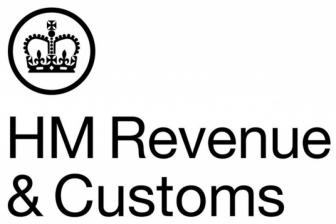 A Londoner has lost a dispute with HMRC after making a wrongful claim for £43,000 in principal private residence relief after failing to prove he lived in a property as his primary home.
A Londoner has lost a dispute with HMRC after making a wrongful claim for £43,000 in principal private residence relief after failing to prove he lived in a property as his primary home.
Sabbir Patwary launched an appeal relating to a closure notice issued by HMRC, rejecting a principal private residence relief (PPR) claim for the year ended 5 April 2016, following the sale of a property in Mile End, east London.
The amount of tax at stake in this First Tier Tribunal appeal, on a gain of £202,170, was £43,199.80. HMRC disputed whether Patwary was living in the property as his primary residence and the onus was appellant to prove his residency.
Patwary purchased the property in Emmott Close in Mile End in April 2010 and told HMRC that he moved out from his parents’ house and lived there from that time until late 2013, sharing the dwelling with his girlfriend, who he later married, and a tenant.
By October 2013, he told the tribunal that his marriage had broken down so he decided to move back in with his parents in Ilford and sell the property, which he finally managed to do in February 2016.
But it transpired that there was a lack of proof that Patwary had lived in the property as his primary residence.
But while Patwary claimed that he had been resident there for more than three years, HMRC questioned his claim as there was insubstantial evidence to prove residency.
In a witness statement, Patwary informed the tribunal that the reason he did not have any bills sent to the property was that he had a close relationship with his family and visited them regularly to collect mail, and also he “did not want to expose some of my personal information” with his ex-wife.
Patwary’s evidence included mortgage statements on the property in question addressed to him at Emmott Close, a letter from a shower company about an expiring guarantee in April 2012, water bills for the period, a bill relating to leasehold services on the block of flats and a letter about an electricity prepayment meter, where the address was not visible.
But further questioning, the tribunal established that Patwary worked locally for his father, did not register to vote at his new address “as he preferred to vote in the more marginal constituency of his parents’ home where his vote would carry more weight’ and ‘did not own a TV and so he did not have a TV licence”.
In addition, he claimed that his payslips did not have an address on them and that he did not have council tax statements for the property as this was handled by his tenant.
HMRC’s argued that the appellant did not live at the property as his only or main residence, and secondly, if at any relevant time he had done, this lacked any degree of permanence or continuity.
In addition, Patwary sent a letter to HMRC in June 2020 stating that ‘the length of my residence at Emmott Close was unexpected and unforeseen, as a result it made little sense for me to change bank addresses and to register to vote at this address’.
On the appellant’s argument, the tribunal accepted that “whilst what he is asserting does not seem improbable, we would expect to see certain amounts of evidence to back this up”.
‘This case has seen remarkably little evidence from the appellant to demonstrate a period of residence in the property of over three years,” the tribunal said.
“In addition we note that there was no supporting evidence in the form of non-official documentation.”
In dismissing the case, tribunal Judge Sarah Allatt said: ‘We have seen nothing other than assertions by the appellant that back up his claim to have lived at the property. Accordingly, we conclude that the appellant has not discharged the burden of proof to show that the assessment is incorrect.”
The appeal was rejected.


Comments are closed.